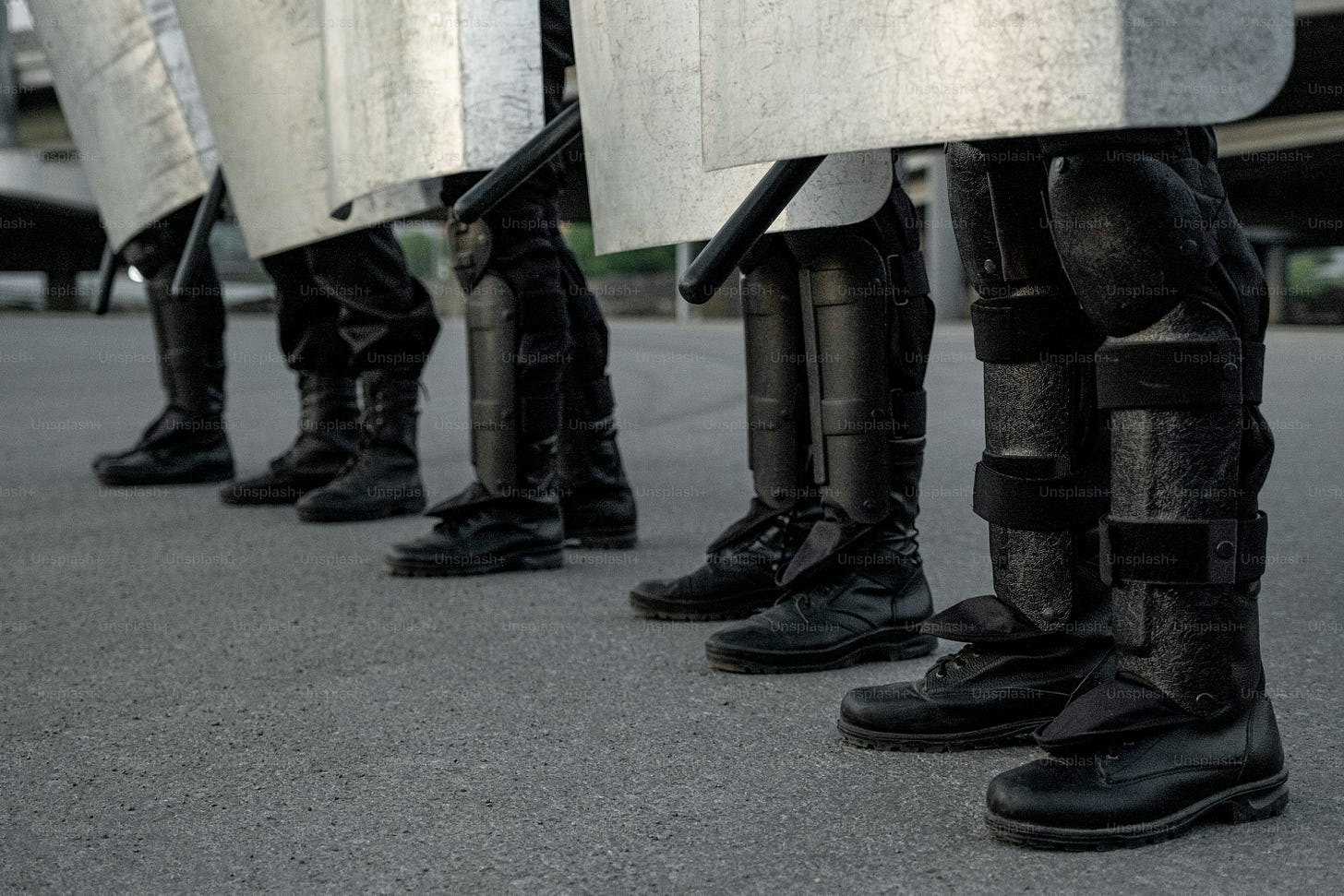Matt Gurney: The Fermi Paradox, and U.S. political violence.
America is a violent place. But all things considered, it's less violent than we'd expect it to be. Why? And will that hold?
By: Matt Gurney
You might have heard of the Fermi Paradox. If not, don't feel too bad — it's a bit obscure. The paradox apparently dates back to a casual lunch in 1950 enjoyed by Enrico Fermi, the Italian-born (later American) physicist who was a key player in the early development of nuclear technology and, via the Manhattan Project, nuclear weapons. According to the story, which is a bit vague since no one took notes, Fermi and a group of similarly credentialled and brilliant colleagues were enjoying a meal and chatting about the rapid technological development that humanity was experiencing. Nuclear power and rocketry were both in their infancy, but the enormous transformative potential of both were already obvious. Mankind was also rapidly expanding its knowledge of the solar system and the cosmos, and absolutely everything we knew then — and now! — assures us that life on Earth ought not to be miraculous.
The galaxy is teeming with stars a lot like ours, and many of them are orbited by planets not too wildly different from Earth. The obvious conclusion is that the galaxy is probably positively awash with civilizations at least as advanced as ours — advanced enough to master rocketry and nuclear power, which is enough, given sufficient time and effort, to begin expanding out across the stars. On a time scale of millions of years, which is a blink of the eye in astronomical terms, an advanced civilization would be able to not just cross the void between the stars, but colonize the galaxy — all of it, with a little persistence. And with technology not much more advanced than what we had in 1950, or have today.
And this brings us to Fermi's paradox: everything we know tells us that we ought to have a lot of neighbours out there. Or even setting up trading posts and religious missions (or worse!) right here on Earth.
So where are they? Where is everybody?
The Fermi Paradox came to mind recently as I considered the U.S. general election, scheduled for today. There is a lot of concern about dysfunction, if not outright civil disorder and violence. And of course there is — every social indicator we know to look at tells us that the United States is a tinderbox, filled with tens of millions of people who utterly detest their political rivals and own enough weapons to outfit a dozen armies. This isn't just idle speculation, either. Local police forces and judicial officials are issuing dire warnings to would-be trouble-makers; my favourite so far was a district attorney in Philadelphia, who, channelling the true spirit all fans of the City of Brotherly Love will recognize, called a press conference and declared flatly "'Eff' around and find out." (Gosh, I do love Americans.) In Washington, D.C., the Secret Service and local police are fortifying key sites (including the White House) and closing streets. Governors are putting their National Guards on alert in case of election-related disorder; in a statement to The Line, National Guard officials reported that as of Monday afternoon, 10 states have the Guard activated, and 10 more have troops on standby.
The numbers are low — 250 troops, all in. But I’d feel better if the number was zero. None of this feels unwarranted to me. None of it feels like overkill. The U.S. really does feel like it could be on the brink of something awful. But even as I write that, there's something I can't quite shake — a U.S.-politics twist on Fermi's paradox. Everything we know about the U.S. tells us that it should be soaked in political violence and chaos. And to a point, it is — but only to that point. Much like Fermi looking around for aliens, I find myself looking at the U.S., with its bitter divides and armed militias, and wondering ... where's the violence? Where's the bombings of political rallies, the routine shooting up of party campaign HQs? Where's the road checkpoints?
Where is everybody?


